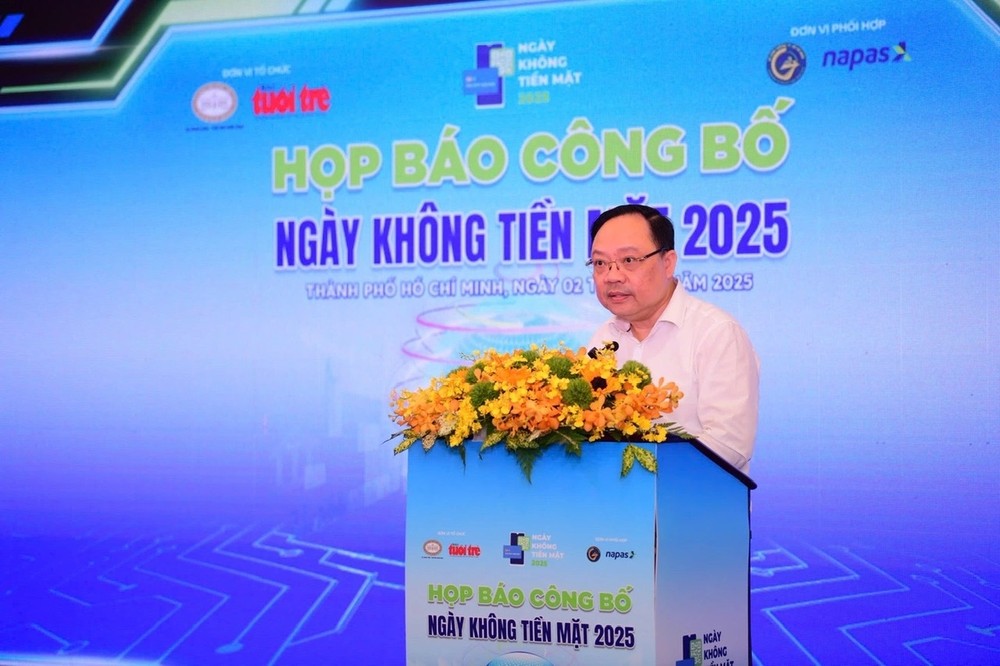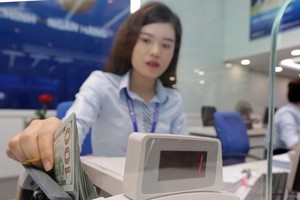Mr. Pham Anh Tuan made the announcement during a press conference in Ho Chi Minh City on June 2, held to unveil the 2025 Cashless Day campaign, themed “Cashless Payments Driving the Digital Economy.”

The event was jointly organized by the SBV’s Payment Department, Thoi Bao Ngan Hang, and Tuoi Tre newspapers, in coordination with the Ho Chi Minh City Department of Industry and Trade and the National Payment Corporation of Vietnam (Napas), under the guidance of the SBV and the HCMC People’s Committee.
Under Circular 17/2024, starting July 1, 2025, any corporate or organizational accounts lacking biometric data will be barred from conducting digital transactions, Mr. Pham Anh Tuan said.
The SBV is also drafting amendments to Circular 17/2024 to tighten identity verification for organizational and enterprise accounts. According to the proposed changes, legal representatives and chief accountants must open accounts in person at banks, without the option of delegating the process. Commercial banks will be required to collect and verify biometric data from these individuals, with the government promoting the use of the VNeID app to cross-check against national population databases.
Additionally, a new draft regulation on cards and accounts will mandate credit institutions to deploy technology-based identity verification for in-person transactions. This will replace the current reliance on bank tellers to manually verify customer identities using physical documents.
"The revised circular is expected to be open for public and business feedback in July and take effect by September 1. It will bring about significant changes in the near future," Mr. Pham Anh Tuan noted.
In response to a recent wave of AI-driven cyber fraud targeting financial systems, Mr. Pham Anh Tuan acknowledged that some service providers have yet to meet international standards for data security and eKYC (electronic know-your-customer) protocols. The SBV has therefore mandated that credit institutions and payment service providers comply with global security certifications. Circular 50 outlines a compliance roadmap for these safety benchmarks, amid an escalating and unpredictable threat landscape posed by digital fraud and cybercrime.
Mr. Pham Anh Tuan also revealed that the SBV is developing a centralized database of suspicious corporate card and wallet accounts. Currently, 350,000 such accounts have been flagged for potential fraud.
To further crack down on fraudulent activity, authorities plan to enact new legal frameworks that will allow banks to close accounts lacking biometric verification. The SBV will also work closely with law enforcement to cleanse and consolidate financial data. Statistics show that out of more than 200 million total accounts, only about 113 million individual accounts and over 711,000 corporate accounts are active and have updated biometric information—marking the start of what officials call a “data cleansing revolution.”
Cashless Day 2025 is the latest chapter in Vietnam’s push for digital payment adoption. It also serves as a key milestone in reviewing progress under the 2021–2025 National Cashless Payment Development Strategy and lays the groundwork for the next phase of the country's digital economic transformation.
With the theme “Cashless Payments Driving the Digital Economy,” this year’s campaign aims to reach at least 50 million people, generate over 5 million online and media engagements, draw 200,000 in-person participants, and boost the rate of cashless transactions in Ho Chi Minh City by at least 20 percent during June 2025.
























